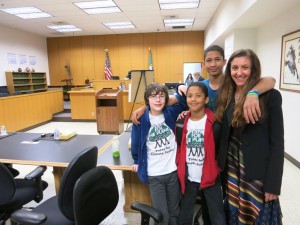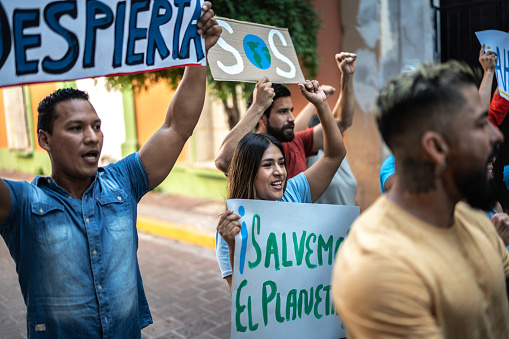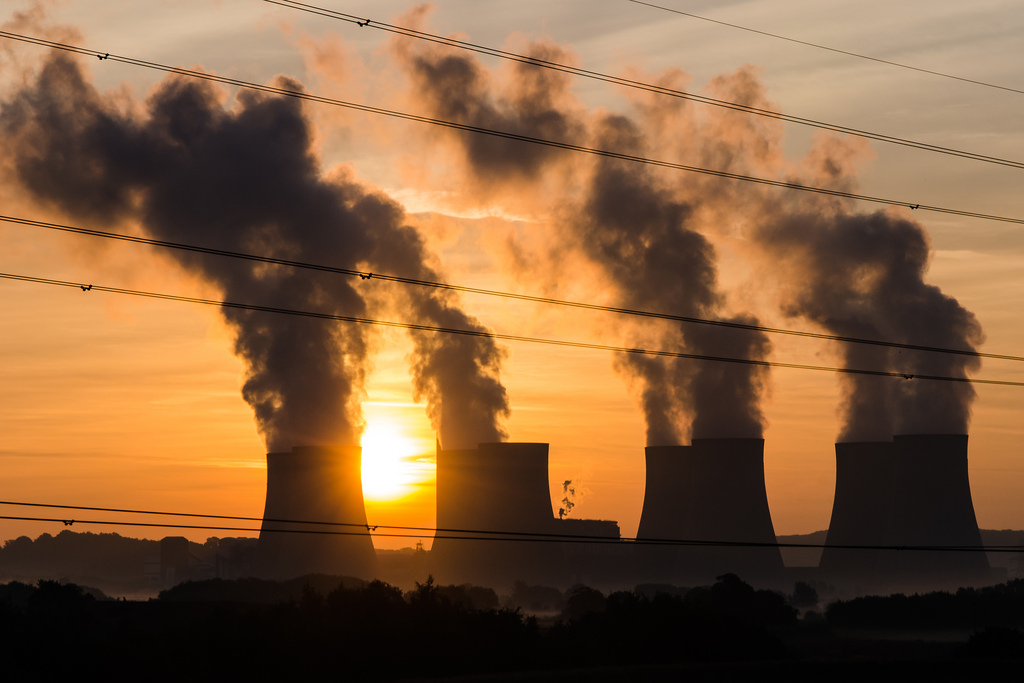Daniela Lapidous
Sabin Center Summer Intern

One year ago, eight young climate activists (ranging from 9 to 14 years old) petitioned Washington State’s Department of Ecology (“the Department”) to adopt and implement stricter greenhouse gas emissions regulations based on the most current and best available climate science. When the Department denied the petition last August, the petitioners sued to appeal the denial. The activists’ efforts are part of a campaign of similar legal cases coordinated by the non-profit Our Children’s Trust, through which the youths are calling for urgent action to protect Washington’s natural resources for current and future generations of children.
On Tuesday, June 23, a court decision ordered the Department to reconsider their denial of the petition. Effectively, Zoe & Stella Foster v. Washington Department of Ecology has become the first case in the United States in which a court ordered a state agency to consider the best available climate science when setting greenhouse gas emissions restrictions. King County Superior Court Judge Hollis Hill issued the decision, and the young petitioners were represented by attorney Andrea Rodgers of the Western Environmental Law Center.
In 2008, the Washington legislature adopted the goals of reducing overall state GHG emissions to 1990 levels by 2020, to 25% below 1990 levels by 2035, and to 50% below 1990 levels by 2050 or 70% below the state’s expected emissions that year (RCW 70.235.020). The petitioners argued that the Department should adopt and implement regulations instead amounting to a minimum 80% reduction from 1990 GHG emissions by 2050, through a mandated, immediate 4% annual reduction in emissions.
In justifying the Department’s ability to act, the petitioners draw upon the State of Washington’s constitutional obligations to protect natural resources, existing statutory obligations and executive orders, and the Public Trust Doctrine – which provides that certain natural resources cannot be owned privately and should instead be protected by the government for the use of all, including future generations. They also include an impressive overview of climate change science, from global hazards to local impacts on Washington. Two points are particularly interesting:
First, the petitioners’ recommended targets would be in line with Washington State’s proportional contribution towards a global goal of returning atmospheric carbon dioxide levels to 350 ppm by 2100, which correlates with 1°C of warming. International agreements (such as the Copenhagen Accord in 2009) state that 2°C of warming is the ‘safe’ limit based on available science, but the petitioners argue that “the 2007 [IPCC] compilation of science from the early 2000’s is now outdated and has been shown to underestimate the catastrophic impacts associated with warming of 2°C above preindustrial temperatures.” The document points especially to the unpredictable effects of “slow feedbacks,” such as the melting of the Greenland and Antarctic ice sheets, and cites Dr. James Hansen of NASA as confirming that 450 ppm would lead to greater than 2°C of warming.
Second, the petitioners acknowledge that the Department cannot change the statutory limits for overall GHG emissions for 2020, 2035, and 2050, because only the legislature has the authority to do so. Instead, the petition argues that the statutory limits provide a “ceiling” for maximum GHG emissions and contends that the Department has the right and obligation to enact stricter restrictions, through rulemaking, that would keep emissions below the defined ceiling.
According to Rodgers, the decision to seek change through the regulatory process followed an unsuccessful attempt to compel the state legislature to act in a 2011 case decided by the Washington Court of Appeals (Adora Svitak vs. State of Washington). Rodgers explains, “We tried to hold the Legislature accountable for failing to take scientifically-based action to reduce GHG emissions, and the Washington Court of Appeals held that [the court] didn’t have the power to do so, in part, because they considered climate change a political question. In that decision, the court made it clear that in order to make these arguments, we would need to challenge ‘an affirmative state action or [characterize] the State’s failure to undertake a duty to act as unconstitutional,’ so we followed the Court’s advice and petitioned [the Department of] Ecology to promulgate a rule that is within their statutory authority to do. That way, we would then have an ‘affirmative state action,’ i.e., Ecology’s final decision on the rulemaking petition that could be appealed under the Administrative Procedures Act.”
Last December, the Department released a report suggesting that no change in greenhouse gas reduction standards would be made until after COP21, the international climate change conference happening this December in Paris. However, Judge Hill wrote in her decision that “neither in its briefing nor in oral argument of this appeal did the Department seek to justify this suggested delay.”
The Department had moved to exclude the December report from the Superior Court’s review, on the basis that it was published four months after the denial of the petition in August. The Department argued that the report was therefore not part of the administrative record and did not meet the requirements for new evidence. Judge Hill denied this motion, stating that the report constitutes relevant new evidence. She wrote that the Department should reconsider its denial of the petition in light of the scientific evidence and statements it makes in its own report: “If we delay action by even a few years, the rate of reduction needed to stabilize the global climate would be beyond anything achieved historically and would be more costly.”
The parties are currently engaged in settlement negotiations. Department Director Maia Bellon will meet directly with the petitioners, and the petitioners have also invited Governor Inslee. The parties now have until August 7 to agree on a proposed rule regulating carbon dioxide emissions based on the best available science; if an agreement is not reached, the youths are prepared to go back to court and ask the court to order Ecology to promulgate a rule.
In combination with the recent news of a Dutch court ordering the Netherlands to implement stricter greenhouse gas emissions reductions, it has been a good few weeks for the enforcement of science-based targets.



